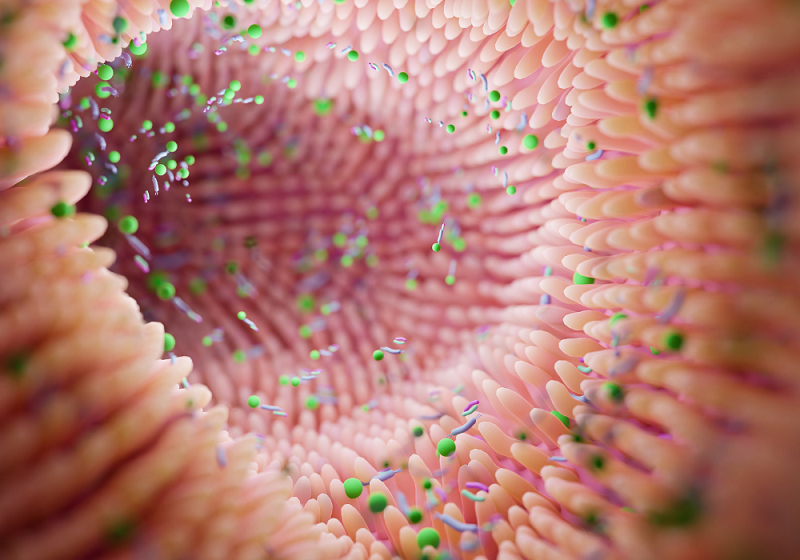We have already spoken to you several times about the homemade kombucha In our previous articles (which we will cite later in this article), we discussed a millennia-old beverage obtained by fermenting a base of sweetened tea that has garnered increasing interest over the years due to its health benefits. It is easy to make your own organic kombucha at home with the same quality as those found in organic stores. Some people consider kombucha to be an elixir, a sort of liquid medicine that can alleviate various ailments thanks to the probiotics it contains. It has a slightly acidic taste and originates from the Far East. Join us as we dive into the fascinating world of kombucha, this time exploring the 5 benefits of kombucha that have won the hearts of many natural health enthusiasts.
What is the origin of kombucha ?
To this day, the exact origin of kombucha remains unclear as this fermented drink dates back several centuries. The origin of the first kombucha is difficult to pinpoint because to make kombucha, you already need kombucha! That's why, instead of defining where the first kombucha came from, we try to see where its initial ingredients, which are black tea and a few grams of sugar, originated and when they first came together, thus creating the conditions conducive to the fermentation. It is estimated that it occurred more than 2000 years ago, and it is believed that this beverage was consumed for the first time during that period. Kombucha then became popular in Russia and other regions of Eastern Europe over the centuries.
Regarding the name "Kombucha", it means in several Asian countries "tea mushroom", although Kombucha is not really a mushroom...
What are the benefits of kombucha?
Improvement of intestinal transit and digestive health:
The kombucha is reputed to be a probiotic drink, thanks to the yeasts and beneficial good bacteria for gut health that it contains. These probiotics can help restore and maintain a healthy balance of gut flora. The fermentation process of kombucha, on the other hand, generates organic acids such as acetic acid and lactic acid, which can aid digestion by facilitating the breakdown of food in the stomach and thereby improving nutrient absorption in the intestine. These probiotics, which promote a healthy gut flora, strengthen the immune system and provide better resistance to infections.

Detoxification:
As we mentioned above, kombucha promotes good digestion thanks to probiotics. This efficient digestion aids in the elimination of toxins through the intestinal tract and thus detoxifies the body. Additionally, this beverage has antioxidant properties such as polyphenols, which play a role in combating the damage caused by free radicals in the body, thereby limiting cellular aging responsible for several diseases such as cancer.
Improvement of mental health:
The kombucha does not have a direct impact on mental health, it can influence your mental health by improving your overall health. This is largely thanks to probiotics (which is no longer a secret for you now ;) ), which promote a balanced microbiome and can potentially positively influence mood and cognition. Although the results are still debated in this field, emerging research suggests a link between gut health and mental health, leading to the hypothesis of the "intestinal brain". This term refers to the idea that the gut microbiota can influence brain function and mental health.
Energizing effect:
Can kombucha boost energy? The answer is yes! Kombucha contains caffeine from tea (a smaller amount than coffee), which can act as a natural stimulant to provide an energy boost. It also contains several vitamins such as iron, zinc, vitamin B1, and B6 which are essential for boosting energy.

Small amount of sugar:
Not only is kombucha a sparkling and pleasant-tasting drink, but it is also an excellent alternative to sugary beverages such as sodas and industrial juices because it contains almost no sugar. You might think that to prepare kombucha you need sweetened tea, so how is it that this drink can contain only a small amount of sugar? It's thanks to fermentation. During this process, bacteria and yeasts convert the sugar into various compounds, including organic acids and a bit of alcohol (ethanol). The longer the fermentation period, the more likely the sugar is to be consumed, which is why it is a healthy, low-sugar drink.
Can you lose weight with kombucha ?
If you think that drinking kombucha while gorging on pizza, burgers, and treats at the same time is allowed and can help you lose weight just because you drink kombucha, well, the answer is no! The key to successfully losing weight is to follow a balanced diet while regularly engaging in physical exercise (if you're too lazy to exercise daily, at least 30 minutes of walking per day is effective in helping you maintain good physical shape).
So kombucha on its own is not an option for losing weight, but if it is incorporated into a balanced diet, it can certainly help you achieve your weight loss goal.
This healthy drink is generally low in calories compared to other beverages. To lose weight, there must be a balance between calorie intake and energy expenditure. Conclusion: a balanced diet, portion control of what you eat, and physical exercise. It seems like you only entered a plus sign. Could you please provide the text you would like translated from French to English? Kombucha can help you achieve significant weight loss results. So, the Kombucha is part of a healthy lifestyle. and indirectly contributes to weight loss.
How much kombucha should you drink each day ?
Scientifically speaking, there is still no evidence on the adequate amount of kombucha to drink per day. This quantity can vary from person to person depending on several factors, including your individual tolerance, personal preferences, and health goals. It is best to start with small amounts if you have never consumed kombucha before, to see how your body reacts to this fizzy drink and also to allow your gut to adapt to the new microorganisms contained in kombucha. It is wise to start with half a glass to a glass per day. You can then gradually increase this dose as you get used to it; some people can consume up to 1 liter per day.
It should be noted that kombucha contains a small amount of alcohol. In this case, individuals sensitive to alcohol should be very careful with their consumption of kombucha.
What is the best time of day to drink kombucha ?
Here again, there is no best time to drink kombucha; no studies have proven that any particular time is ideal for consuming this beverage. There is no strict rule regarding the perfect moment, but you can follow our suggestions to choose the time that suits you best:
- You can drink kombucha as a refreshing beverage at any time of the day; it can be particularly enjoyable when well-chilled on a hot day.
- You can drink Kombucha at room temperature before or during a meal, as it can help stimulate digestion due to its probiotic content.
- Kombucha can be a healthy alternative to sugary drinks and high-calorie snacks. If you crave a snack between meals, it can satisfy you while providing useful nutrients.
- You can drink kombucha in the morning as a natural energy-boosting beverage.
- Some people prefer to drink kombucha in the evening. Although kombucha contains caffeine, the amount is generally very low. For most people, it will not have a significant effect on sleep if consumed in the evening, but if you are sensitive to caffeine, then avoid consuming it at night.
In summary, listen to your body and choose the time that best suits your needs and preferences.
How to prepare kombucha ?
Biovie has thought of you! No need to buy all the ingredients separately (to spend more money), you can find with us a complete kit which includes all the necessary materials to prepare your kombucha in the simplest way possible at home.
The preparation of Kombucha at home can be found in our article. It seems like your message is incomplete. Could you please provide the full text you would like translated from French to English?Where to buy a kombucha mother ?Sure, I'd be happy to help! Please provide the text you would like translated from French to English. "in the title" "How to use our Kombucha kit?" ,where we explain in detail how you can prepare your kombucha with our kit.

What are the potential side effects of kombucha ?
Overall, consuming kombucha does not generally pose significant risks, except in cases of overconsumption and for sensitive individuals. Some adverse reactions that may occur include:
Bloating and gas: Due to the fermentation of kombucha, it contains gases that can cause bloating or flatulence in people who are not accustomed to drinking this fizzy beverage. The probiotics present in kombucha can (in some cases) disrupt your gut microbiota if you are not used to consuming them.
Digestive irritations: For people who suffer from digestive disorders, drinking kombucha can be very harmful to their health. It can sometimes irritate the stomach or the digestive system, causing stomach aches or heartburn, and even other health problems related to its consumption.
Nausea and diarrhea: Some people may experience nausea after consuming Kombucha. It can also sometimes lead to loose stools or diarrhea if it is too concentrated or consumed in large quantities.
Effects related to alcohol: Kombucha contains a small amount of alcohol, usually less than 1%. If you consume a large quantity, it can cause slight intoxication in some people.
Is it safe to drink kombucha during pregnancy ?
It is not really recommended to drink kombucha during pregnancy, as it can pose some risks to consider. As mentioned earlier, kombucha contains traces of alcohol which can be potentially harmful during pregnancy because it is strongly advised to avoid alcohol consumption throughout the entire pregnancy period.
Furthermore, the risk associated with the non-pasteurization of kombucha could cause serious problems for pregnant women. This beverage can also present a risk of contamination by harmful bacteria if it is prepared at home without adhering to sterile fermentation conditions.
In summary, avoid drinking kombucha during your pregnancy to prevent any health issues for you or your baby.








